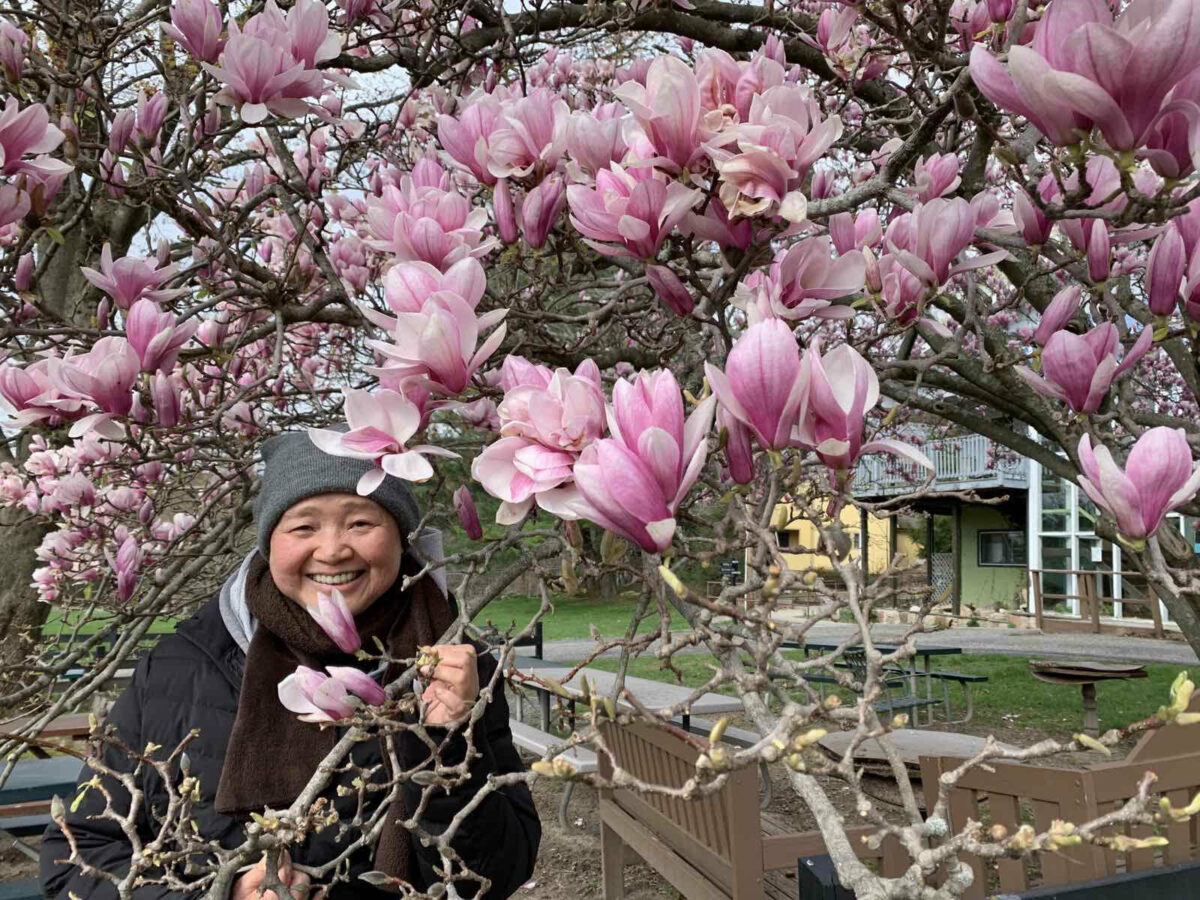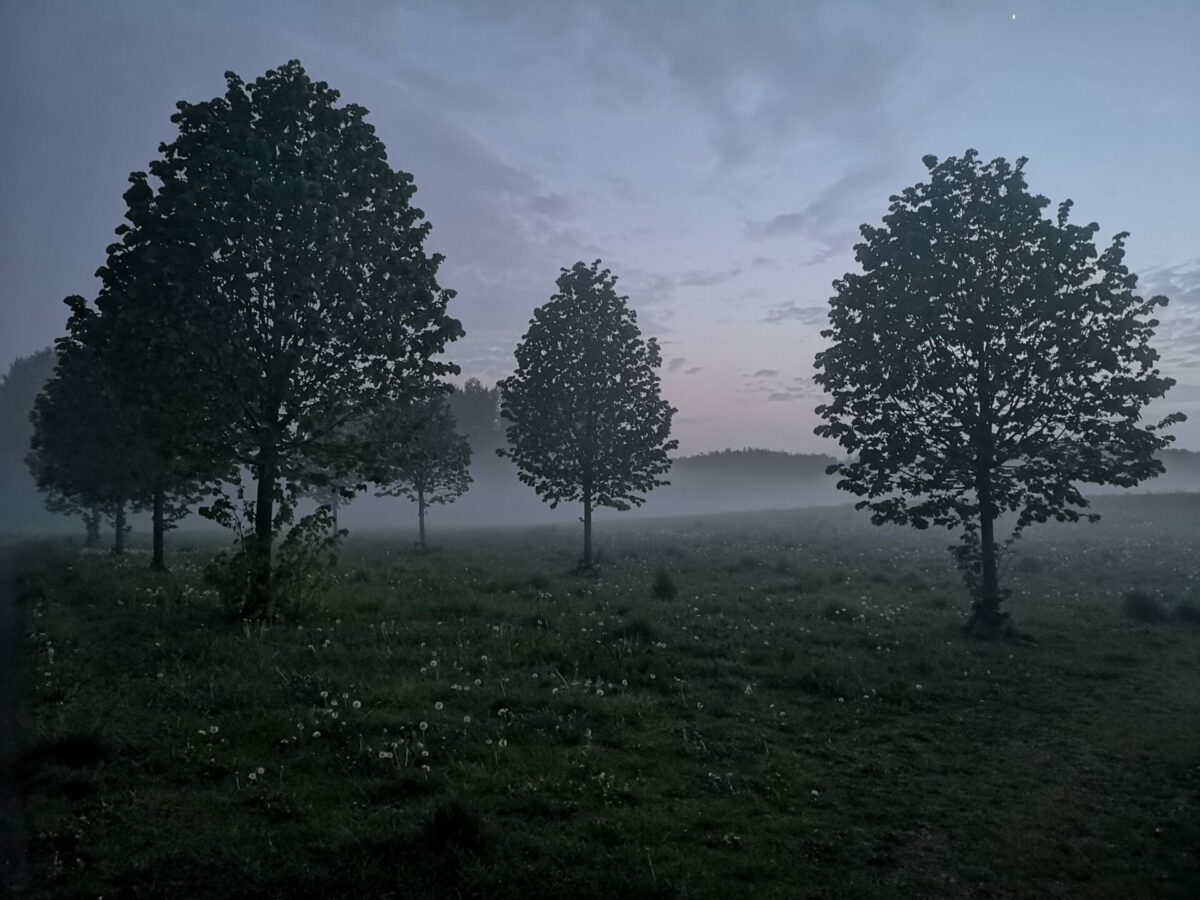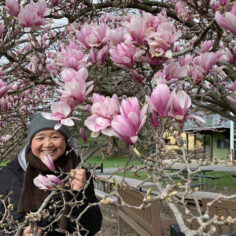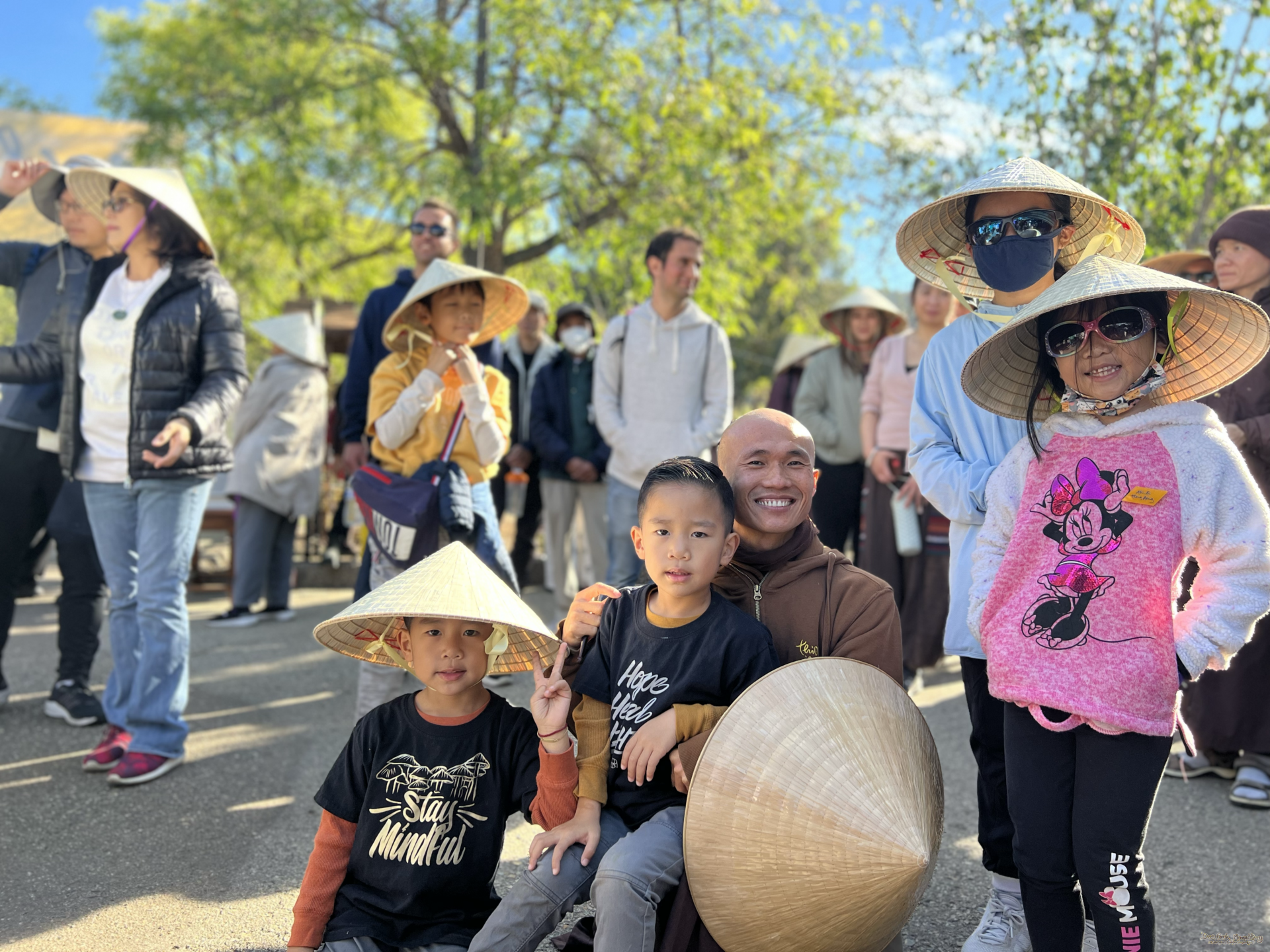By Sister Chân Hoa Nghiêm on

Sister Chân Hoa Nghiêm teaches us how the mud of loss and uncertainty can be a mindfulness bell to live fully in the present moment.
As I think about my brother passing away alone during the COVID-19 pandemic—two years ago now—I still feel a lot of pain and hurt.
For the last six years I haven’t gone back to visit my family in the United Kingdom.
By Sister Chân Hoa Nghiêm on

Sister Chân Hoa Nghiêm teaches us how the mud of loss and uncertainty can be a mindfulness bell to live fully in the present moment.
As I think about my brother passing away alone during the COVID-19 pandemic—two years ago now—I still feel a lot of pain and hurt.
For the last six years I haven’t gone back to visit my family in the United Kingdom. I had been planning to return there to be reunited with them after being apart for so long. But because of the pandemic, I was not able to go back for a visit, and then COVID-19 took my brother’s life away. When he first became sick, my family encouraged him to try to overcome the virus. We contacted each other by phone. I sent him a message, “Dear, dear brother, please try to overcome your sickness! I will come back and see you, and I will cook delicious vegetarian food for you! I love you very much.” My family prayed and prayed for him. But in the end, he could not overcome the virus. My family was in so much pain thinking of him leaving this world in loneliness, with none of us beside him—not even his wife and his children.
“Even though we know that life is impermanent, separation is still painful.” I cried a lot the day that my brother passed away. I suffered because he died. In the Avatamsaka Sutra, the Buddha taught the bodhisattvas to look deeply into the five skandhas: Form is like a bubble. Feelings are like shadows on the water. Perception is like strong sunlight. Mental formations are like the stalk of the banana tree, and consciousness is an illusion.
I know that life is short and that our bodies are fragile, so why was I still so sad when my brother passed away? Suddenly these words arose in my mind:
Our life is like a floating bubble, a drifting cloud Alive in the morning and dying in the evening It happens continuously Loving each other so deeply, then alone Hating each other so fiercely, then exiled Love, hate, hate, love Win, lose, being, non being They keep churning. Wandering the six realms of the way of birth and death The ocean of suffering is full of afflicted minds. This afternoon, the beggar stops her travels She feels exhausted by the suffering world She turns her boat in the opposite direction of the waterfall Letting go of her worldly mind, she calms the ceaseless waves of suffering.
In this poem I thought of myself as the beggar—I could see my mind still wandering in the stream of worldly sadness and happiness. That is why I suffered so deeply after the death of my brother. The evening after I’d written the poem, this insight came to me: “This is the nature of life. This is it.” When conditions were sufficient, my younger brother manifested. When conditions were no longer sufficient, my younger brother was transformed into another form. Looking deeply into the true nature of life, I had to face reality. I had to accept the truth. I had to practice letting go of my deep suffering and of my regrets at not being able to see him again.
Looking at a cloud floating in the blue sky, I thought: “Tomorrow it may be my turn. Sooner or later. I cannot escape death.” I remembered Thầy’s teaching: “Let us cherish the remaining days. Happiness will smile on each step.” Let me dry my tears and cherish the remaining days. I vowed to live meaningfully in each moment. How many days remain for me? I don’t want to allow myself to be occupied with pain. Despite both losing my brother to COVID-19 and having lingering fears about the virus, I want to enjoy the wonderful beings in front of my eyes; I do not want to let sadness and worry obscure their beauty. I want to cherish each step I take on the earth. I walk for my brother. I walk for those who have passed away from COVID-19, war, and environmental disaster. I aspire to cherish every breath and to be aware that I am still alive. I aspire to cherish the presence of my beloved ones who are still alive, to cherish those who are around me, those who I can listen to, can see, and can touch.
I have a suggestion for you: Please say loving words to someone you love. Don’t be miserly with loving words for your parents, your children, your sweetheart, or those you love. Otherwise, you will have regrets. When our beloved ones pass away, we will regret that we didn’t say loving words to them while they were still alive. Fortunately, I was able to say loving words to my brother before he died. When I had accepted my brother’s death, the pain in my heart gradually transformed. I didn’t feel any regret.
My brother has two sons. The eldest is twenty-two years old and is a high school teacher. The youngest is seventeen and is in the eleventh grade. He is a teenager with a lot of dreams about the future. My brother was a bus driver. He left home for work early every morning. He worked hard and wished that he could give his sons a full and happy life. He taught his children not to drink or smoke, not to be giddy, and to study hard. They are very nice boys, and they always listened to their father’s advice.
When I visited them in 2016, I saw that my nephews worked very hard and did not have much time for travel or other leisure activities. I recommended that my brother bring the boys to visit another country for a holiday, to have a break from working. In this way, the boys could learn the culture of a different country while at the same time being there for each other. But my brother shook his head and said: “Thank you, my dear sister. I want to wait a few more years.”
How many of us have waited for a good opportunity to do something for ourselves and for those we love? But death will certainly never wait for anyone. Even a king or an omniscient being cannot avoid impermanence. When it comes, we can’t bargain. I feel permeated with the words, “Don’t miss our appointment with life.” Life is appearing in front of my eyes. If I don’t take advantage of it right now, I may lose my opportunity.
On the day that my nephew received an A on his twelfth grade entrance examination, he handed the certificate to his mother, hugged her, and cried a lot. He said he was so sad that his father was not here to celebrate the good grade. Certainly his father would have been proud of his youngest son, who is such a good student. As a result of his father’s death, my nephew decided to study medicine. In the future he hopes to help many people to get rid of their diseases. My brother is being continued in the form of his two children.

Letting go of worry and fear
Yesterday I walked on the new walking meditation path that has been discovered by the brothers at Blue Cliff Monastery. The path is lined with tall trees whose red and yellow leaves alternate beautifully. As I was walking, a sudden wind blew the leaves, and they flew everywhere! I stopped walking and with amazement looked at the scene in front of my eyes. So beautiful! The leaves were flying across the forest like flowers from heaven spreading down to the earth. I had never seen such beautiful flowers and I imagined that the flowers in heaven must be just as beautiful. Suddenly I realized that my life is no different than a leaf’s life. The leaf has gone through many transitions: at the beginning it was green, then gradually its color turned a deeper dark-green, and now, towards the end of its life, it has become very bright. The leaf will turn to a dark-brown before finally withering away. Coming back to reality, I continued to step on the dry yellow leaves and thought: Before returning to the Motherland, these leaves have a chance to fly freely in space. How beautiful! I wondered, Can I be like an autumn leaf? Can I be as free and untroubled as the leaves before I return to the Motherland?
Last fall, strong winds blew down an apple tree at our Monastery. Before it died, whenever I would pass by the apple tree in the nunnery, I would stand under the low branches, reach for a ripe red apple, and enjoy each sweet and sour bite. Delicious apple in my mouth, I would be full of gratitude for its beautiful fruit. It seemed that the apple tree knew it would die before winter—the previous spring it produced an abundance of beautiful flowers. In the fall, the flowers became many beautiful and delicious fruits. The tree knew how to donate all that is beautiful and delicious before leaving.
Do not let the days pass by!
Two years ago, with only sixteen days left until 2021, Win Grace, my Zoom English teacher said: “Dear Sister, I think 2020 is a really muddy year. Everything is bogged down in the mud. I hope that the year 2021 will be clear and bright, like a lotus growing from the mud.” I was surprised to hear her words. So true! That year was full of fear and separation. So many people died from the virus. The tears for losing our beloved ones—in my case my brother—were like the ocean. The years 2021 and 2022 contained lots of joy, but lots of suffering, too: the Russo-Ukrainian War, continued environmental degradation, and the lasting effects of the pandemic. In the past two years, there were lotuses growing from the mud of 2020, and there was also more mud so that new lotuses can bloom in the future. If we only think of and reminisce about our suffering, we will be drowned in the sea of suffering.
All conditioned things are impermanent. They are phenomena, subject to birth and death. When birth and death no longer are, The complete silencing is joy.
Remember the Buddha’s teaching to see that all the phenomena happening now in the world are impermanent. Do not be afraid; accept the truth of impermanence. Accepting the truth means letting go of the past and returning to the present moment. But the present is made of the past; we make the present better by reflecting on and drawing wisdom from our past experiences. We have the time and skillful means to live with more awareness in our thinking, acting, and consuming.


